business
Voltage Aims To Bring Bitcoin’s Lightning Network To Every Business In The World
Published
1 month agoon
By
admin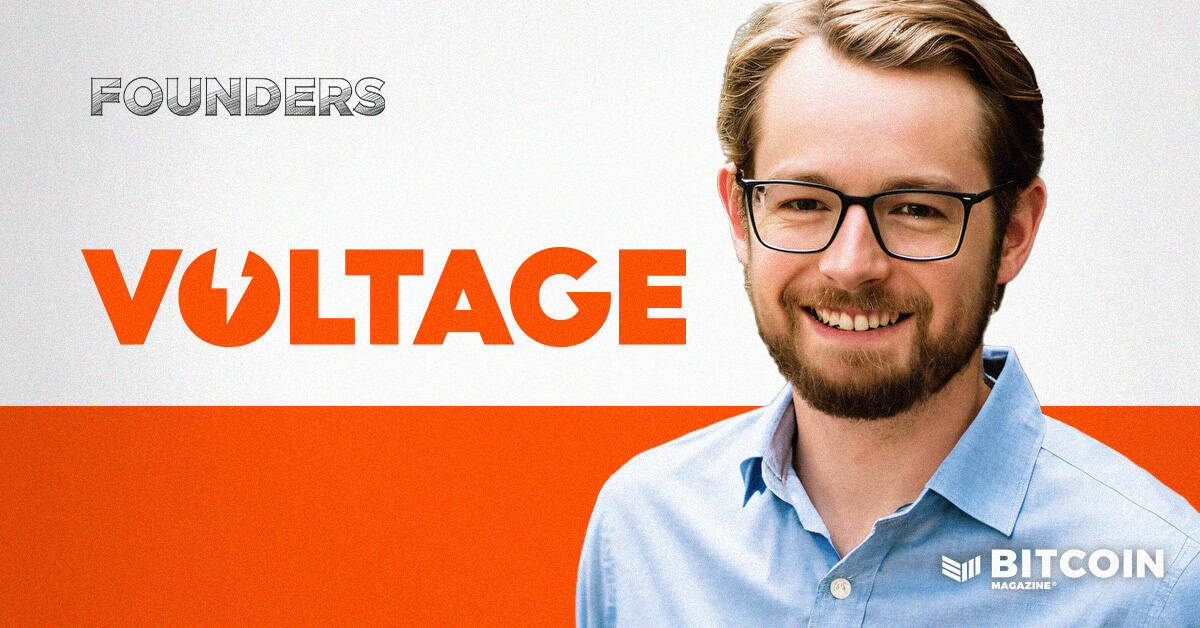
Founder: Graham Krizek
Date Founded: October 2020
Location of Headquarters: Wichita, Kansas
Number of Employees: 17
Website: https://www.voltage.cloud/
Public or Private? Private
In 2012, soon after Graham Krizek discovered Bitcoin and subsequently began contributing to Bitcoin Core and building his own applications on Bitcoin, he noticed an issue that was hindering Bitcoin builders.
“The problem that I saw was that everyone was building everything from scratch — over and over and over again,” Krizek told Bitcoin Magazine. “There was no cloud environment where you could just spin up Bitcoin infrastructure and be able to start developing against it.”
At the time, Krizek didn’t feel compelled to act on this issue, though. He was still primarily focused on his career as a software engineer outside of the Bitcoin space, working for various startups as well as companies as large as Salesforce, while contributing to Bitcoin in his free time.
But something shifted within him when he learned about the Lightning Network.
He saw its potential and knew that it would have to be made easier to use if it were to be widely adopted.
“When I found Lightning, I said to myself ‘Okay, this is the next phase of Bitcoin adoption, the thing that’s going to really drive it to the next level,” said Krizek.
“Then, I saw the same pattern happening as I did with Bitcoin. Everyone kept starting from scratch while building, but the problems were more intense because Lightning is that much more complicated,” he added.
“I was like ‘We need a cloud provider where you can just click a button and have a Lightning node running and maintained for you.’ It can just be there so we can develop applications and build the projects we want to build much easier, much faster.”
And so Krizek got to work in creating such a product.
He shared the initial iteration of it with friends and acquaintances, many of whom began using it so much that the project demanded more of his attention.
“The usage grew to a point where I was like, ‘Man, I either need to shut this down because I can’t maintain it anymore or I need to turn this into a business and do it for real,’” said Krizek.
He decided on the latter, and by late 2020, he’d founded Voltage.
How Voltage Works
Voltage abstracts away the complexities of using Lightning by allowing users to deploy a Lightning node and spin up a channel in just a few clicks.
While Voltage hosts your node in its cloud, its public key, peers, channels, balance and transactions all remain private, as all of the traffic routed through the node is transferred via Tor.
While your node is running in the Voltage cloud, which is supported by the Google Cloud and several other cloud service providers, Voltage also helps users manage liquidity and offers other forms of customer support.
Essentially, Voltage abstracts away the difficulties of engaging with Lightning, while supporting its users in the process. And it does this in efforts to help institutions more readily adopt Lightning. Krizek also mentioned they have new products and capabilities to help even traditional finance companies with the integration.
“The mission of Voltage is to make Bitcoin and the Lightning Network accessible to every business on the planet,” said Krizek.
“Lightning is fantastic. It’s got a lot of really amazing capabilities, but it can be really hard to wrap your head around it and especially to incorporate it for business operations — especially for businesses that maybe aren’t in the Bitcoin or crypto space,” he added.
“We make it easy to use and plug in.”
What Types Of Companies Are Using Lightning?
In the past year, notable companies such as major crypto exchange Coinbase and Latin America’s largest fintech bank Nubank have incorporated Lightning into their operations.
Krizek sees this trend of crypto exchanges, neobanks and other financial service platforms onboarding to Lightning continuing in the year ahead.
“Finance companies are definitely going to be the biggest movers because if you can take the value of sub-second settlement with zero fees and apply that to a big payment processor that does global payments, it’s an incredible value add for their business,” said Krizek.
What is more, Krizek sees companies outside of the Bitcoin, crypto and finance space also beginning to utilize Lightning in 2025, in part, because companies like Voltage are making it easier to do so.
“2025 will be a big year for starting to branch out of our niche market,” said Krizek.
“The technology has still been a little rough around the edges for a big company like Walmart to be like, ‘Hey, we’re going to plug this in now.’ Even with Voltage, we haven’t been perfect the entire time with making Lightning super easy to use,” he added.
“I think we’ve made huge strides in the last like year, though, and we have a lot more coming out.”
Another major hurdle for companies looking to adopt Lightning is the risk that comes with managing bitcoin’s volatility.
But that risk doesn’t exist if companies send Tether (USDT) over Lightning instead of bitcoin, which they will be able to do soon.
Tether (USDT) On Lightning
Krizek is optimistic about USDT coming to Lightning, as he believes it will spur growth on the network.
“I think that we’re going to have a lot of products and solutions around it,” said Krizek.
“It’s not even just me being personally excited about it. A lot of our customer base is very excited about it. They’re asking for it directly from us because stablecoins are pretty much the biggest use case in crypto today,” he added.
“When you couple stablecoins with sub-second settlement fees and very low fees, that’s a huge unlock. With fees on Tron getting more expensive. People are looking for an alternative.”
(Tron has been the leading blockchain for stablecoin transactions because of how low fees on the network have been historically.)
As far as USDT running over Lightning potentially presenting a security risk to Bitcoin (as I think it does), Krizek doesn’t seem concerned.
“It doesn’t worry me at all,” said Krizek.
“I think that we’ve advanced since the Blocksize War in terms of takeovers, as I don’t think it’s as easy for a large institution to coerce the Bitcoin ecosystem like some did during the Blocksize Wars,” he added, referring to Tether potentially gaining outsized influence over Bitcoin.
“And it’s even better to integrate something like Tether (USDT) on Lightning because it’s a peer-to-peer network — it’s not public consensus. So, you have much more ability to say ‘Hey, if you don’t want to participate in the USDT transfers, just don’t do it.’”
Moving Forward In A Pro-Bitcoin Regulatory Environment
U.S. Crypto Czar David Sacks is an investor in Voltage (via his venture capital firm, Craft Ventures). This would indicate that he has some understanding of the Lightning Network and the role of bitcoin as a medium of exchange.
So, does this mean that the U.S. is on the verge of embracing bitcoin as such?
According to Krizek, not exactly.
“Everyone is screaming at the government right now for a Strategic Bitcoin Reserve, which treats bitcoin as a store of value,” explained Krizek.
“Over time, we will definitely hear more and more about bitcoin as a means of payment. We just need to get through this Strategic Reserve conversation first and then say, ‘Okay, what else can we do with this?’” he added.
The fact that the government is painting Bitcoin in any sort of positive light at all, though, is exciting to Krizek. Since 2012, when he first entered the Bitcoin space, the government has either dismissed Bitcoin or been antagonistic towards it.
“When I started in Bitcoin, it was completely ignored, and the last four years were very bad for companies like us,” said Krizek.
“With this new administration, we’ve definitely seen the tone shift. We’re still working through certain things, but we’re definitely turning a corner and heading in the right direction,” he added.
“I’m really excited to see where that can go over the coming year. I think it will be a positive one.”
Source link
You may like


Kraken Secures Restricted Dealer Status in Canada Amid 'Turning Point' for Crypto in the Country
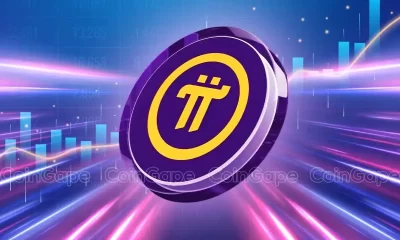

Binance Sidelines Pi Network Again In Vote To List Initiative, Here’s All


XRP Price Reversal Toward $3.5 In The Works With Short And Long-Term Targets Revealed


Former New York governor advised OKX over $505M federal probe: Report


First Digital USD (FDUSD) Depegs After Justin Sun Alleges Firm Is ‘Insolvent’ and Not Fulfilling Redemptions


Gen Z’s Bitcoin Bet, The Largest Wealth Transfer In History?
business
FDIC Clears Path for Bank Crypto Activities Without Prior Approval
Published
5 days agoon
March 29, 2025By
admin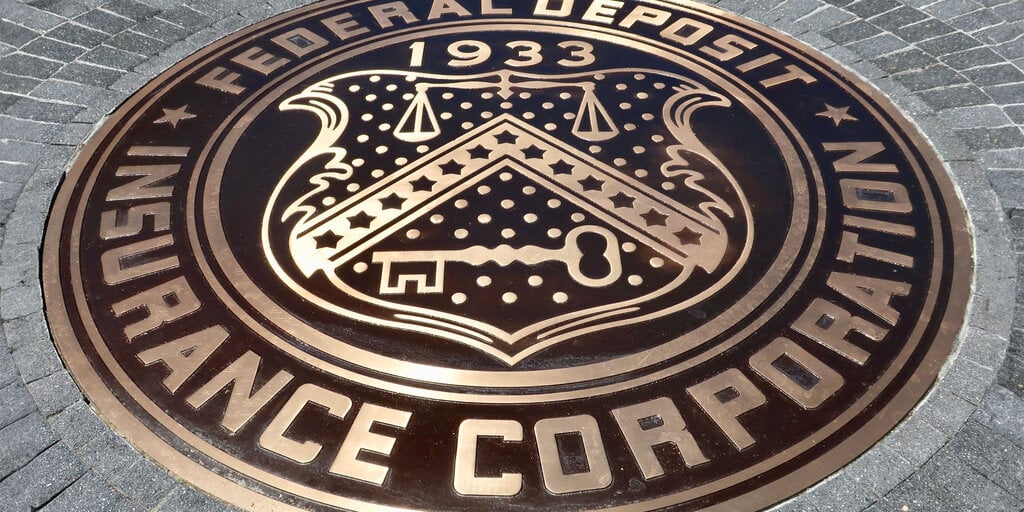
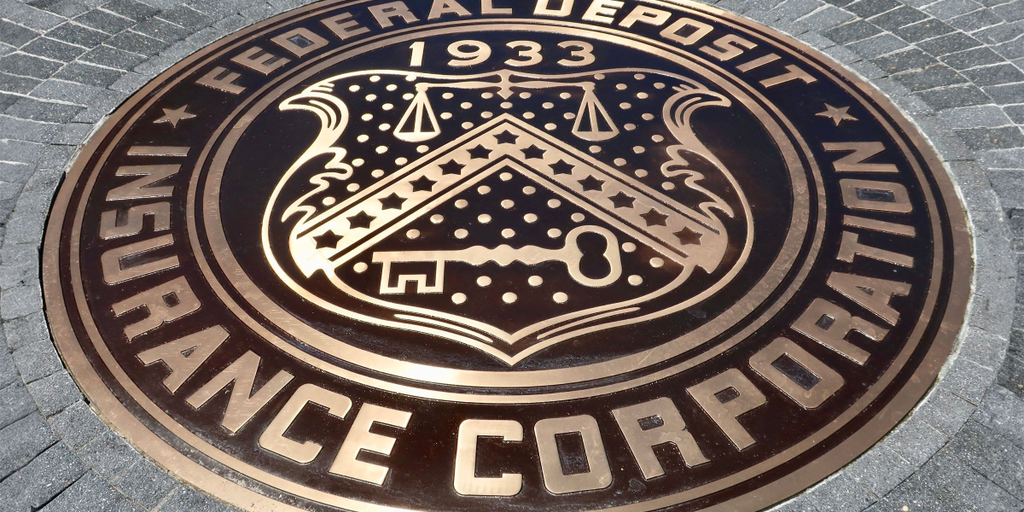
Banks can engage in cryptocurrency and other legally permitted activities without seeking prior regulatory approval, so long as they manage risks appropriately, The Federal Deposit Insurance Corporation announced Friday.
The policy change rescinds a 2022 requirement that mandated FDIC-supervised institutions notify the agency before engaging in crypto-related activities. Under the new guidance, banks can offer services involving digital assets without the agency’s advance permission.
“With today’s action, the FDIC is turning the page on the flawed approach of the past three years,” FDIC Acting Chairman Travis Hill said in a statement. “I expect this to be one of several steps the FDIC will take to lay out a new approach for how banks can engage in crypto and blockchain-related activities in accordance with safety and soundness standards.”
The move aligns with similar actions by the Office of the Comptroller of the Currency, which earlier this month reaffirmed that national banks can engage in certain crypto activities, including custody services and stablecoin transactions.
This regulatory shift marks a stark departure from the Biden administration’s approach to cryptocurrency and banking relationships. Documents released earlier this year through Freedom of Information Act requests showed the FDIC frequently deterred banks from offering crypto-related services, critics claimed.
The previous regulatory stance had drawn criticism from lawmakers who started investigations into what some called “Operation Chokepoint 2.0,” a reference to an Obama-era initiative that targeted certain industries including firearms dealers and payday lenders. Critics claimed the Biden administration had similarly targeted the cryptocurrency industry through banking restrictions.
In its new Financial Institution Letter (FIL-7-2025), the FDIC clarified that “FDIC-supervised institutions may engage in permissible crypto-related activities without receiving prior FDIC approval.”
The reversal follows months of pressure from cryptocurrency advocates and completes a significant pivot in federal banking policy. Industry representatives had accused regulators of using informal pressure tactics, including concerns about “reputational risk,” to discourage banks from serving cryptocurrency businesses.
American Bankers Association President and CEO Rob Nichols praised the decision. “We welcome FDIC’s new guidance allowing supervised institutions to engage in permissible crypto-related activities without receiving prior FDIC approval,” he said in an official statement. “America’s banks are actively evaluating ways to compete safely and responsibly across the financial services ecosystem, and this type of regulatory clarity is critical to enhancing innovation in the space.”
The FDIC emphasized that banks still need to consider various risks associated with crypto activities, including market and liquidity risks, operational and cybersecurity concerns, consumer protection requirements, and anti-money laundering obligations. The agency noted that institutions “should engage with their supervisory team as appropriate” when pursuing such activities.
Friday’s announcement comes as part of a broader effort by the Trump administration to remove hurdles for digital assets. Besides the OCC’s actions, the government is pushing for a crypto reserve, and taking actions to boost the local crypto ecosystem.
While cryptocurrency advocates welcomed the policy reversal, challenges remain for the industry—which, as consequence, means not everyone is excited with this regulatory shift. “Holy shit, the next Wall St. crash is going to make us long for the good ol’ days of the Great Depression,” said Justin Rosario, host of the political podcast “The Opinionated Ogre.”
Others expressed concerns about the abruptness of the change. “FDIC announces robust new requirement to engage in crypto activities: you must pinky swear,” bank advisor and expert Donald F. Billings wrote on LinkedIn.
The FDIC regulates and insures banks that hold trillions of dollars in deposits. Its new stance could potentially unlock significant capital flows into the cryptocurrency sector as banks reassess their ability to serve digital asset companies and offer crypto-related products to customers.
Edited by James Rubin
Daily Debrief Newsletter
Start every day with the top news stories right now, plus original features, a podcast, videos and more.
Source link
business
France’s Public Investment Bank Bpifrance to Invest $27 Million in Crypto
Published
6 days agoon
March 28, 2025By
admin

France-based public investment bank Bpifrance announced Thursday plans to invest $27 million (€25 million) directly into tokens and decentralized technologies in an effort to “strengthen the French blockchain ecosystem.”
Announced during a blockchain-focused event in Paris, the bank’s investment seeks to accelerate its “digital asset investment strategy” by bolstering French crypto startups and assisting the local venture capital players in Web3.
“We are convinced of the growing importance that these players will take on in the years to come, and we want to increase French competitiveness and presence in the field of digital assets,” Arnaud Caudoux, Deputy CEO of Bpifrance, said in a Thursday statement.
Bpifrance’s new fund will complement its long-standing financial support mechanisms—like grants, loans, and equity funding—by targeting blockchain-native models with a strong “French footprint.”
DeFi, staking, tokenization, Layer 1–3 protocols, AI-driven tools, and digital ID solutions are among them.
It represents one of the first moves by a major state investment bank to purchase open-market crypto tokens—a “pioneering initiative,” as Bpifrance put it.
Bpifrance will specifically target “smaller, newly-issued tokens” from French projects—assets that have yet to be listed on exchanges.
“The U.S. is really accelerating its own crypto strategy, so this is all the more important,” Caudoux said as cited in a Reuters report, noting the U.S. crypto push under President Donald Trump as a wake-up call.
Since his re-election, Trump has pledged to make the U.S. the “undisputed Bitcoin superpower,” floated plans to mine Bitcoin domestically, and vowed to make the nation the “crypto capital” of the world.
The pro-crypto President’s administration has also rolled back SEC enforcement against crypto firms, drawing blockchain talent and capital toward the U.S. at a time when Europe remains cautious.
In response to developments in the U.S., Bpifrance’s initiative seeks to retain and nurture blockchain talent within France.
Bpifrance is no stranger to crypto—it first backed hardware wallet firm Ledger in 2014 and has since invested in Aleph.im, Morpho, ACINQ, and others.
In a 2023 interview with Decrypt, Bpifrance’s Blockchain & Crypto Lead Ivan de Lastours said the bank was also exploring zero-knowledge proofs, noting their potential to verify authenticity in a world dominated by AI-generated content.
“They may be key to the future of the internet,” de Lastours said.
Walking the line
France’s broader crypto momentum got another boost this week when The Blockchain Group, a France-based tech firm listed on Euronext Paris, announced it had purchased 580 BTC, worth roughly $50.6 million.
While such initiatives show a proactive approach to Web3 innovation in France, it comes at a time when the country’s regulatory bodies are intensifying scrutiny of the crypto sector.
In January, French authorities launched a judicial investigation into Binance, the world’s largest crypto exchange, over allegations of money laundering and tax fraud.
The probe focused on activities between 2019 and 2024, with potential offenses committed in France and the European Union.
In November 2024, the French gambling regulator, ANJ, began probing Polymarket, a crypto-based prediction market platform, to assess its compliance with French gambling laws.
The probe was triggered after a French trader reportedly placed a multi-million-dollar wager on the outcome of the U.S. presidential election, prompting Polymarket to cut off access for users in France, effectively shutting out a significant segment of its audience.
Edited by Sebastian Sinclair
Daily Debrief Newsletter
Start every day with the top news stories right now, plus original features, a podcast, videos and more.
Source link
Bitcoin
GameStop Announces $1.3 Billion Fundraising Plan To Purchase Bitcoin
Published
1 week agoon
March 27, 2025By
admin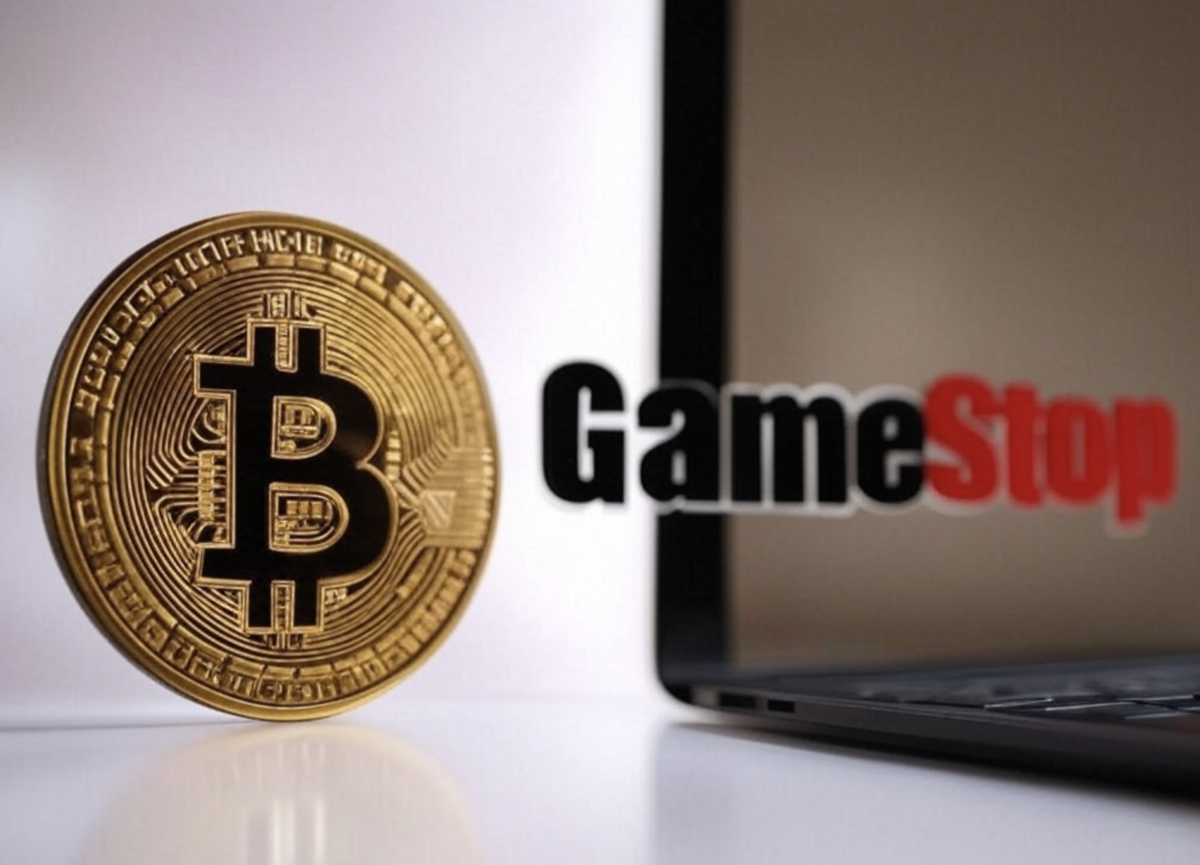
GameStop Corp. (NYSE: GME) announced today that it intends to raise $1.3 billion through a private offering of convertible senior notes and will use the net proceeds from this offering for general corporate purposes, including the acquisition of Bitcoin. The move comes a day after the company revealed an update to its investment policy, allowing Bitcoin to be used as a treasury reserve asset.
The offering consists of $1.3 billion aggregate principal amount of 0.00% Convertible Senior Notes due in 2030. Additionally, the company plans to grant initial purchasers an option to buy up to $200 million more in notes within a 13-day period from the first issuance date. The notes will be general unsecured obligations and will not bear regular interest or accrete in value. They will mature on April 1, 2030, unless converted, redeemed, or repurchased earlier.
Upon conversion, GameStop will have the option to settle in cash, shares of its Class A common stock, or a combination of both. The initial conversion rate and other terms will be determined at the time of pricing. The company stated that it expects to use the U.S. composite volume-weighted average price of its stock from 1:00 p.m. to 4:00 p.m. Eastern Daylight Time on the pricing date as the reference for the initial conversion price.
GameStop emphasized that neither the notes nor any shares of common stock issuable upon conversion have been or will be registered under the Securities Act of 1933 or any state securities laws. As a result, they may not be offered or sold in the United States without registration or an applicable exemption. The company also stated that there are no assurances that the offering will be completed as described or at all.
This marks a significant financial decision for GameStop as it pivots toward integrating Bitcoin into its corporate strategy. A strategy pioneered by Strategy’s Michael Saylor, who met with GameStop’s CEO Ryan Cohen in person last month, and has definitely appeared to have had an influence on the GameStop’s decision to embrace BTC as a reserve asset.
Source link

Kraken Secures Restricted Dealer Status in Canada Amid 'Turning Point' for Crypto in the Country

Binance Sidelines Pi Network Again In Vote To List Initiative, Here’s All

XRP Price Reversal Toward $3.5 In The Works With Short And Long-Term Targets Revealed

Former New York governor advised OKX over $505M federal probe: Report

First Digital USD (FDUSD) Depegs After Justin Sun Alleges Firm Is ‘Insolvent’ and Not Fulfilling Redemptions

Gen Z’s Bitcoin Bet, The Largest Wealth Transfer In History?

Trump’s Crypto Conflicts Dominate Stablecoin Legislation Debate

First Digital denies allegations, threatens legal action

Crypto Firm Galaxy Secures UK FCA Approval for License to Expand Derivatives Trading

Why Is The Bitcoin Price Surging Today?

Cardano Founder Reveals What Will Onboard 3 Billion New Users Into Crypto

Sentient open-source AI search outperforms GPT-4o and Perplexity

Memecoin Collapse Creates Perfect Moment for TradFi To Launch ‘Trusted Assets,’ According to Chris Burniske

Breez Announces Launch Of New Wallet, Misty Breez

Alabama, Minnesota Advance Bitcoin Reserve Plans With Companion Bills

Arthur Hayes, Murad’s Prediction For Meme Coins, AI & DeFi Coins For 2025

Expert Sees Bitcoin Dipping To $50K While Bullish Signs Persist

Aptos Leverages Chainlink To Enhance Scalability and Data Access

Bitcoin Could Rally to $80,000 on the Eve of US Elections

Sonic Now ‘Golden Standard’ of Layer-2s After Scaling Transactions to 16,000+ per Second, Says Andre Cronje

Crypto’s Big Trump Gamble Is Risky

Institutional Investors Go All In on Crypto as 57% Plan to Boost Allocations as Bull Run Heats Up, Sygnum Survey Reveals

Ripple-SEC Case Ends, But These 3 Rivals Could Jump 500x

Has The Bitcoin Price Already Peaked?

A16z-backed Espresso announces mainnet launch of core product

Xmas Altcoin Rally Insights by BNM Agent I

Blockchain groups challenge new broker reporting rule

The Future of Bitcoin: Scaling, Institutional Adoption, and Strategic Reserves with Rich Rines

Trump’s Coin Is About As Revolutionary As OneCoin

Is $200,000 a Realistic Bitcoin Price Target for This Cycle?
Trending

 24/7 Cryptocurrency News5 months ago
24/7 Cryptocurrency News5 months agoArthur Hayes, Murad’s Prediction For Meme Coins, AI & DeFi Coins For 2025

 Bitcoin3 months ago
Bitcoin3 months agoExpert Sees Bitcoin Dipping To $50K While Bullish Signs Persist

 24/7 Cryptocurrency News3 months ago
24/7 Cryptocurrency News3 months agoAptos Leverages Chainlink To Enhance Scalability and Data Access

 Bitcoin5 months ago
Bitcoin5 months agoBitcoin Could Rally to $80,000 on the Eve of US Elections

 Altcoins2 months ago
Altcoins2 months agoSonic Now ‘Golden Standard’ of Layer-2s After Scaling Transactions to 16,000+ per Second, Says Andre Cronje

 Opinion5 months ago
Opinion5 months agoCrypto’s Big Trump Gamble Is Risky

 Bitcoin5 months ago
Bitcoin5 months agoInstitutional Investors Go All In on Crypto as 57% Plan to Boost Allocations as Bull Run Heats Up, Sygnum Survey Reveals

 Price analysis5 months ago
Price analysis5 months agoRipple-SEC Case Ends, But These 3 Rivals Could Jump 500x


